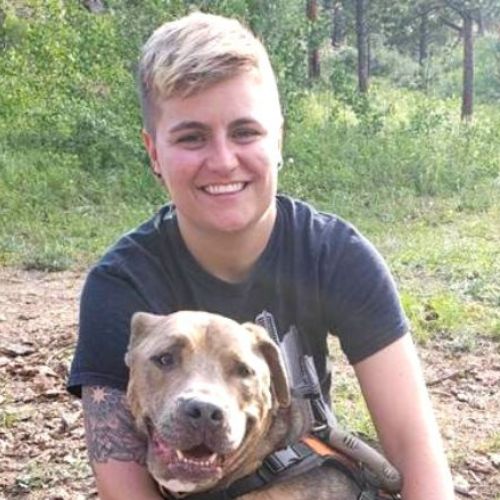Veterinarian in Wellington, CO
Pet Rehabilitation
At Wellington Veterinary Hospital, we offer rehabilitation services to pets recovering from injury, surgery, or other medical issues.
Pet Rehabilitation in Wellington, CO
Pet rehabilitation focuses on providing specialized physical therapy and exercise programs to enhance your pet’s mobility and overall well-being.

“As a veterinarian, my passion lies in helping pets live their best lives. Whether it’s after an accident, surgery, or simply due to aging, I am committed to providing rehabilitation services that help dogs and cats regain their strength and mobility. Seeing the progress that pets make during the rehabilitation process is incredibly rewarding, and it’s an honor to be able to help them on their journey towards improved health and happiness.”
– Dr. Sarah Rich
The Healing Power of Pet Rehabilitation
What is Rehabilitation?
Veterinary rehabilitation is a form of physical therapy that uses targeted techniques such as massage, therapeutic exercise, heat, cold, transcutaneous electrical nerve stimulation (TENS), ultrasound, laser, and hydrotherapy to improve mobility and reduce pain in pets. The primary goal of rehabilitation is to restore full range of motion and strength to areas of injury, returning the patient to as close to normal function as possible. Rest is not always effective for treatment, as it can lead to muscle, tendon, ligament, and bone degeneration over time.
Rehabilitation therapy has been around in non-recognized forms for a long time, but specific therapies began to be researched and recognized as effective treatment options in the late 1980s and early 1990s. All species can benefit from rehabilitation therapy, but historically horses received the most attention due to their role as working and athletic animals. Nowadays, rehabilitation therapy is commonly used in dogs, cats, rabbits, goats, and many other species, improving their mobility and quality of life.

Who does Pet Rehabilitation?
Veterinarians, veterinary technicians, and licensed physiotherapists can receive academic training in canine rehabilitation through various institutions. Depending on the program, a practitioner who completes this training will become a Certified Canine Rehabilitation Practitioner (CCRP), a Certified Veterinary Massage and Rehabilitation Therapist (CVMRT), a Certified Canine Rehabilitation Therapist (CCRT), a Certified Canine Rehabilitation Veterinarian (CCRV), or a Canine Rehabilitation and Physical Medicine Therapist (CRPMT). To ensure the best comprehensive care, a veterinary referral is often required for rehabilitation therapy, and veterinarians are the only ones who can provide whole-body care.
How does Rehabilitation Help my Pet?
Rehabilitation therapy helps patients with both acute and chronic conditions such as cranial cruciate ligament disease, hip dysplasia, fracture recovery, intervertebral disc disease, chronic arthritis, immune-mediated polyarthritis, muscle, tendon, or ligament sprains or strains. It uses various modalities to treat pain, improve neurologic function, and help maintain or improve joint, muscle, tendon, and ligament health. Rehabilitation therapy is a team effort, and pets can benefit from it by reducing pain, increasing strength, endurance, and flexibility, and reducing the risk of future injury. It is usually safe when performed by trained professionals in combination with traditional, integrative, veterinary medicine. Contact us to evaluate the suitability of specific therapy for your pet.

